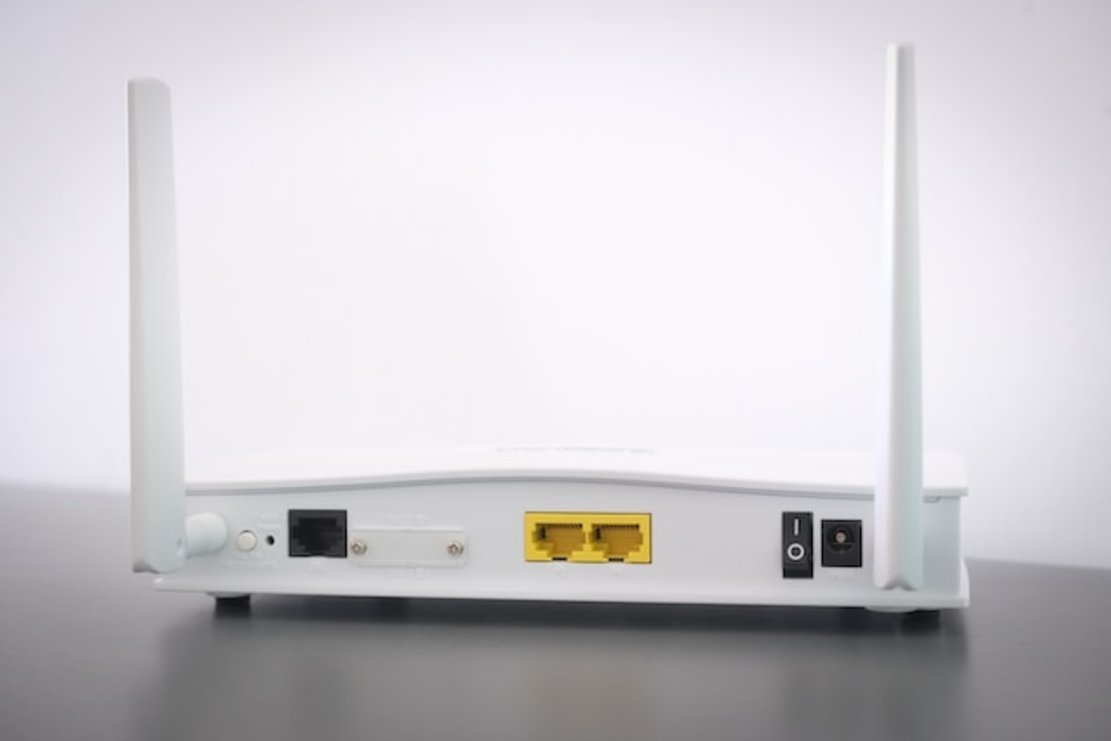No matter how small, businesses benefit from providing guest WiFi. According to a study, 61 percent of customers request complimentary WiFi access in restaurants. Do you have WiFi for small business installed in your establishment? If not, you may be missing a lot of the action.
An in-house WiFi service has become part of many restaurants’ marketing strategies. It’s tough to imagine businesses not having an online marketing strategy. As well as a Google business profile or social media account—all of which came in waves within the last decade. A reliable WiFi connection is necessary for most small businesses, either for employees or guests.
Benjamin Franklin said, “When you’re finished changing, you’re finished.” He may not have been a businessman, but his words mean more for businesses in today’s technology-driven world. You should consider riding the wave if your small business has not adapted to these changes.
Are you providing a WiFi connection to guests as they enjoy their stay at your establishment? Let’s see how this simple investment in technology can bring rewards to your business.

What is the Best WiFi for Small Business?
Guest WiFi is a valuable way to attract and retain customers. Giving your customers an effective way to work or communicate creates a positive experience for those who visit your establishment. Here are the four best WiFi for small business factors to consider.
- Customer Convenience. Guest WiFi is a convenient service for customers, especially if they need to use the Internet at the premises. As we said at the onset, many customers consider WiFi connectivity necessary. Offering WiFi attracts customers who need to stay connected or prefer to work on the go. Coffee shops, restaurants, hotels, and airports should all consider having free guest WiFi.
- Customer Retention. Complimentary guest WiFi makes customers want to visit your establishment more frequently. For example, a restaurant might attract more customers with free WiFi. People are more likely to stay and work or relax if they can access the Internet. Moreover, the longer the stay, the more likely they will order more.
- Marketing and Branding. An in-house free WiFi can be an excellent way to attract new customers and build brand loyalty. As a business, your WiFi is a marketing tool. Offer customers coupons, inform them of upcoming events or sales, or conduct surveys when logging in. The more you know about your customers, the better you can serve them.
- Competitive Advantage. In some cases, offering free guest WiFi may give a company a competitive advantage over similar businesses in the area. For example, if an establishment offers free WiFi and its competitors don’t, it attracts customers. Especially if they are looking for a place to work or relax online.

Are There Reasons for Not Opting for WiFi for Small Business?
For a balanced view, we gathered up reasons companies might have for not having WiFi for small business plans. Here are the primary concerns.
- Cost. One reason small business owners may not offer free WiFi is the cost. According to research, 32 percent of respondents who do not provide public WiFi think it would be too expensive. However, three out of five respondents also say they plan or consider offering guests free WiFi.
- Security Concerns. Security concerns are another reason small business owners may not offer free guest WiFi is security concerns. Some accessible WiFi networks are less secure than private networks. This is because they are available to anyone in the signal’s range. This makes small business owners concerned about the risks of offering free Wi-Fi. They have concerns about data breaches or cyberattacks.
- Limited Bandwidth. Sometimes, owners may not choose WiFi for small business solutions because they don’t have supportive bandwidth. This is especially true for establishments that have a large number of customers. Or businesses that need to use a lot of bandwidth for their own needs.
- Lack of Demand. Some small business owners may not offer free Wi-Fi because they think it needs more demand. For example, a business is not in an area where customers are likely to use it. The owner might not see the value in offering free WiFi.
It’s up to business owners to determine if they need to set up guest WiFi. They must consider cost, security concerns, limited bandwidth, and lack of demand. Then, balance these factors with the foreseen benefits.

Best Mesh WiFi for Small Business Considerations
Before we tackle the best mesh WiFi for small business considerations, you might wonder what mesh WiFi is. If you’re curious, mesh WiFi is a networking technology that uses multiple WiFi nodes or access points. These multiple points create a seamless and reliable wireless connection throughout a larger area. Traditional WiFi setups rely on a single router. Mesh WiFi systems consist of a primary router and one or more satellite nodes. These nodes communicate with one another wirelessly, forming a mesh network.
Here are considerations to consider if you decide whether a mesh WiFi setup is best for your business.
- Mesh networks offer extended coverage. Mesh WiFi systems are designed to cover a larger area than a single router can handle. They are ideal if your building is large or has areas with WiFi dead zones.
- They offer improved performance. Mesh networks distribute the network load efficiently among nodes. This ensures a more consistent and faster WiFi connection throughout the coverage area. Additionally, these networks are self-healing. If one node fails or has issues, the network automatically reroutes traffic through another node. As a result, you maintain a stable connection.
- Mesh networks are easy to set up and secure. Many mesh WiFi systems come with user-friendly mobile apps that simplify the setup and network management. It’s accessible to people with varying levels of technical expertise. Plus, most networks offer advanced security features and robust encryption to help protect data and privacy.
- Scalability. One of the main goals of any business is growth and success. Mesh WiFi systems expand with business growth. Users can add more nodes to cover additional areas or accommodate more devices.

Where is the Best WiFi Access Point for Small Business?
Determining the best WiFi access point for small business location depends on various factors. These factors include the layout of the space, the number of users, and the types of devices used. Here are general guidelines to help you decide where to place WiFi for small business access points.
- Choose a central location. In most cases, placing your WiFi access point in a central location helps provide more coverage throughout your business space. This helps minimize dead zones and ensures the signal reaches all areas.
- Consider obstacles. Be mindful of obstructions like furniture, shelves, and goods that can block WiFi signals. Position your access point with a clear line to your primary customer location.
- Avoid interference. Keep access points away from sources of interference. Electronic devices like microwaves operate on the same frequency bands as WiFi. This interference degrades your WiFi performance.
- Plan for capacity. Consider the number of users and devices you anticipate will connect to your WiFi. If you expect a high volume of users, you need to add additional access points to accommodate the traffic.
- Maintenance. Remember, like other technologies, WiFi is never 100% reliable. Periodically review your WiFi network’s performance. If you notice areas with weak signals or high interference, consider moving your access points or adding new ones.
Remember that the best placement varies from one small business to another. It’s important to assess your needs and space. Then, test your WiFi network’s performance to make adjustments.

Home WiFi or WiFi for Small Business?
Have you wondered if the WiFi service you enjoy at home may be enough for business? WiFi for small businesses and home WiFi are similar in that they both provide wireless internet access. However, there are key differences between the two.
- Network infrastructure: A business network is usually more complex and has a more robust network infrastructure than a home network. This is because business wireless networks typically need to support many devices and users. Configure your internet connection to support specific business needs. These needs include connecting to the company’s internal network or providing secure access to certain services or websites.
- Security: Guest WiFi for small businesses is typically more secure than home WiFi networks. Enterprises with higher security requirements may need to protect sensitive data and resources. Business WiFi networks use more advanced security measures like firewalls, virtual private networks (VPNs), and intrusion prevention systems (IPS) for protection.
- Access and control: Business WiFi networks often have more granular controls over who can access the network and what resources they can access. Companies need to control access to their internal network and resources. This ensures that only authorized users can access them.
- Cost: WiFi for small businesses is more expensive to set up and maintain than home WiFi networks. Companies typically need more advanced hardware and software to support their networks. Additionally, they may need to pay for additional security and support services.
The main differences between WiFi for small business and home WiFi are the complexity, security, access and control, and cost. Guest WiFi for business has the edge over home WiFi.

What is the Best WiFi Router for Small Business?
Again, your needs determine the best WiFi router for small business spaces. As you choose your router, consider the size of your business and the average number of users and customers. Also, consider the type of work you do and your budget.
Speed and performance are important to your clientele. Especially for establishments like coffee shops and hotels where customers are likely to do business. Your customers are likely to return if they are assured of reliable and fast connectivity speeds. Keep security top of mind as a business owner. Especially if you use WiFi for point-of-sale systems. Look for a router with enhanced security features like WPA3 encryption, robust firewalls, VPN support, and a separate guest network.
The router setup depends on the one you choose. It’s always good practice to consult an IT professional to ensure your pick’s router meets your business needs. Once dialed in, you’re ready to use WiFi for small business needs.

How Do I Set up a Guest WiFi for Small Business?
Now that we’ve covered WiFi for small business router options let’s discuss how to set up your guest WiFi. Follow these five steps to enable guest WiFi.
- Enable guest WiFi: Most routers and network switches/access points allow you to enable a guest WiFi network. Follow the instructions provided by the device’s documentation.
- Set network name and password: Choose a name for the guest WiFi network and set a strong password that takes guesswork.
- Configure security and access settings: Determine what level of access you want to give customers. You can limit their access to certain websites or services. Follow the instructions provided by the device’s documentation to configure these settings.
- Test the guest WiFi network: Connect a device to the guest WiFi network and try to access the internet to test your connection.
- Communicate the guest WiFi network details to your guests: Provide them with the name and password for the guest WiFi network and any other relevant information they need. Provide them with instructions on how to connect to the network as well.
Choosing a proven and reliable WiFi network service for small businesses can save you a lot of time for installation.

How Much is WiFi for a Small Business?
If you’re convinced you need internet for your establishment, you might wonder how much is WiFi for a small business. The answer is that the cost varies depending on the hardware, service, and support you decide on. Your router or access point ranges from $50 to several hundred dollars. Additional network hardware such as cables or switches also contribute to the cost of your small business WiFi.
Are you comfortable setting up your WiFi for small business network, or need maintenance and support? If so, you’ll require the assistance of an experienced IT professional. Allow an allotment in your monthly budget for additional WiFi support. Last, your system requires monthly internet service. Do your research and find the one that best suits your business needs and is cost-effective. On average, internet services for small businesses in the US cost $60 per month.

Getting the Most Out of Your Guest WiFi for Small Business
Restaurant owners can use their WiFi for small business data to enhance their marketing efforts. You can dig deeper through WiFi analytics. Use your data to know your customers, increase sales, build brand loyalty, fine-tune your operations, and redirect marketing strategies. Let’s see how guest WiFi for small businesses accomplishes this.
- Collect customer data. Business owners can request customers log in to the guest WiFi network using their email addresses or social media accounts. Then, collect customer data such as email addresses and demographics. Use this data to create targeted marketing campaigns or to understand customer behavior and preferences. Customer data is important to understand your business’s key performance indicators (KPIs). Some of the information you capture includes customer behaviors, traffic, conversions, loyalty, and time spent in your establishment.
- Offer promotions and discounts. Business owners can use guest WiFi to offer promotions and discounts to customers. Offer users a discount on purchases or a free item with purchases as part of a loyalty program. Leverage the information you gather about your customers. Use it to find more ways to offer special promos, freebies, and discounts.
- Create a personalized experience. Small business owners can create personalized experiences for their customers. Send customized offers or recommendations based on Your customer’s past purchases or interests. Receiving personalized service builds an appreciation for the customer and fosters customer loyalty.
- Increase your social media presence. Small business owners can increase their social media presence and build their brand using guest WiFi. Customers will likely follow the business’s social media accounts if they have already connected to the network through the guest WiFi for small businesses.

Final Thoughts on WiFi for Small Business Advantages: Good WiFi Work Wonders
A reliable and secure WiFi network is essential for any small business. Your business internet helps to boost customer satisfaction, drive traffic and enhance marketing efforts. Furthermore, WiFi is a strategic tool for collecting data and learning more about your customers. Invest in WiFi for small business by taking the time to choose the right WiFi solution.
Beambox’s WiFi marketing solution can help your small business. Thousands of small businesses are already reaping the rewards of having Beambox in their venues. More importantly, these businesses are collecting data, helping them plan, monitor, and redirect their marketing efforts. Beambox is a plug-and-play device that’s easy to install and configure. Learn more about Beambox and start growing your business now.
Get Started With Free WiFi Marketing
Beambox helps businesses like yours grow with data capture, marketing automation and reputation management.
Sign up for 30 days free